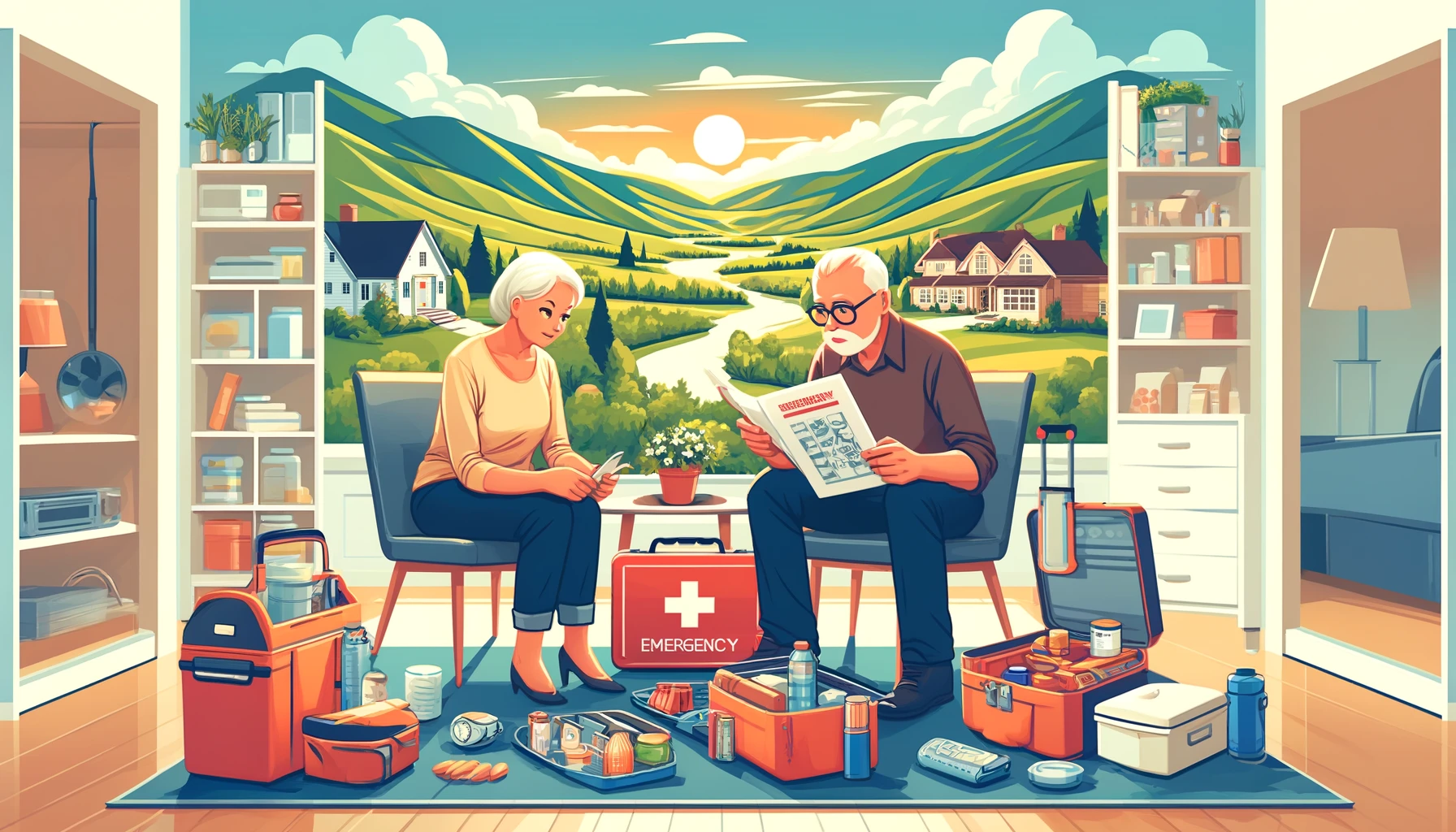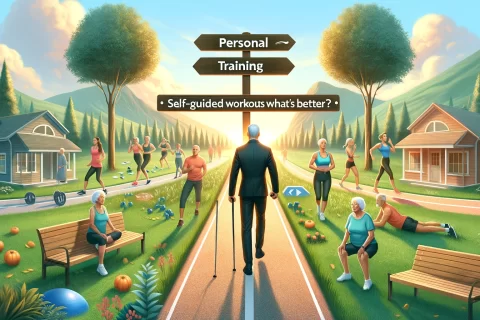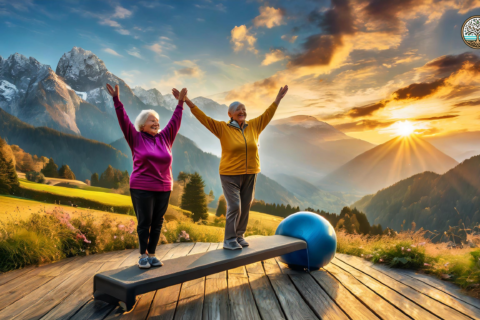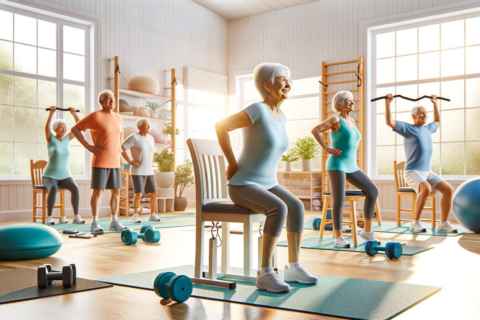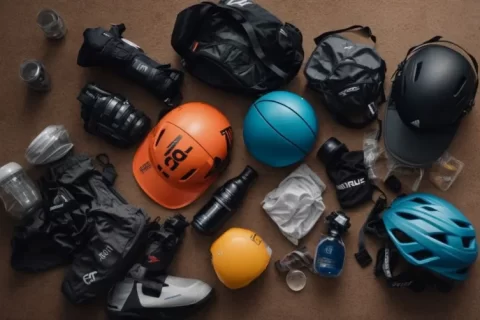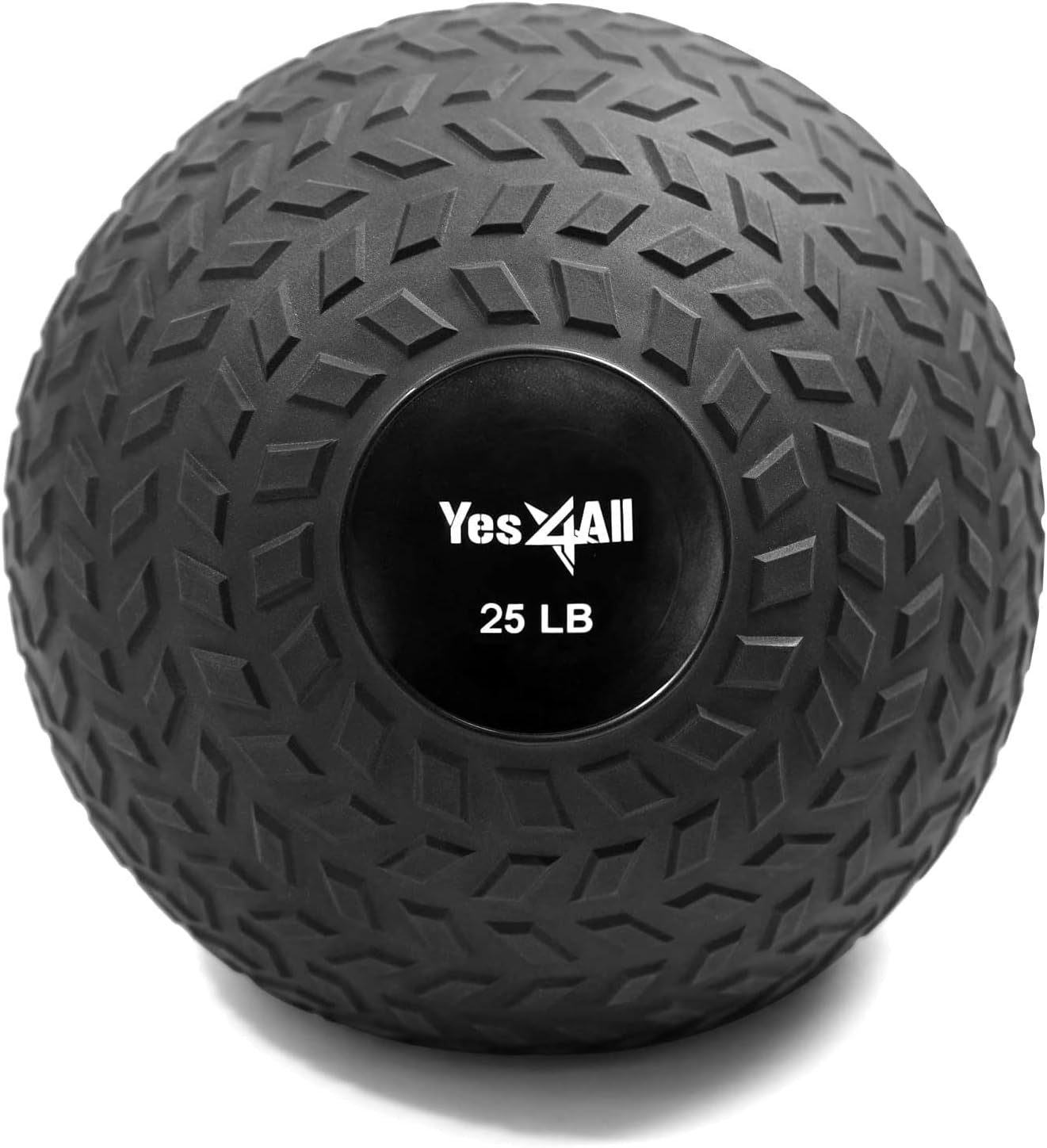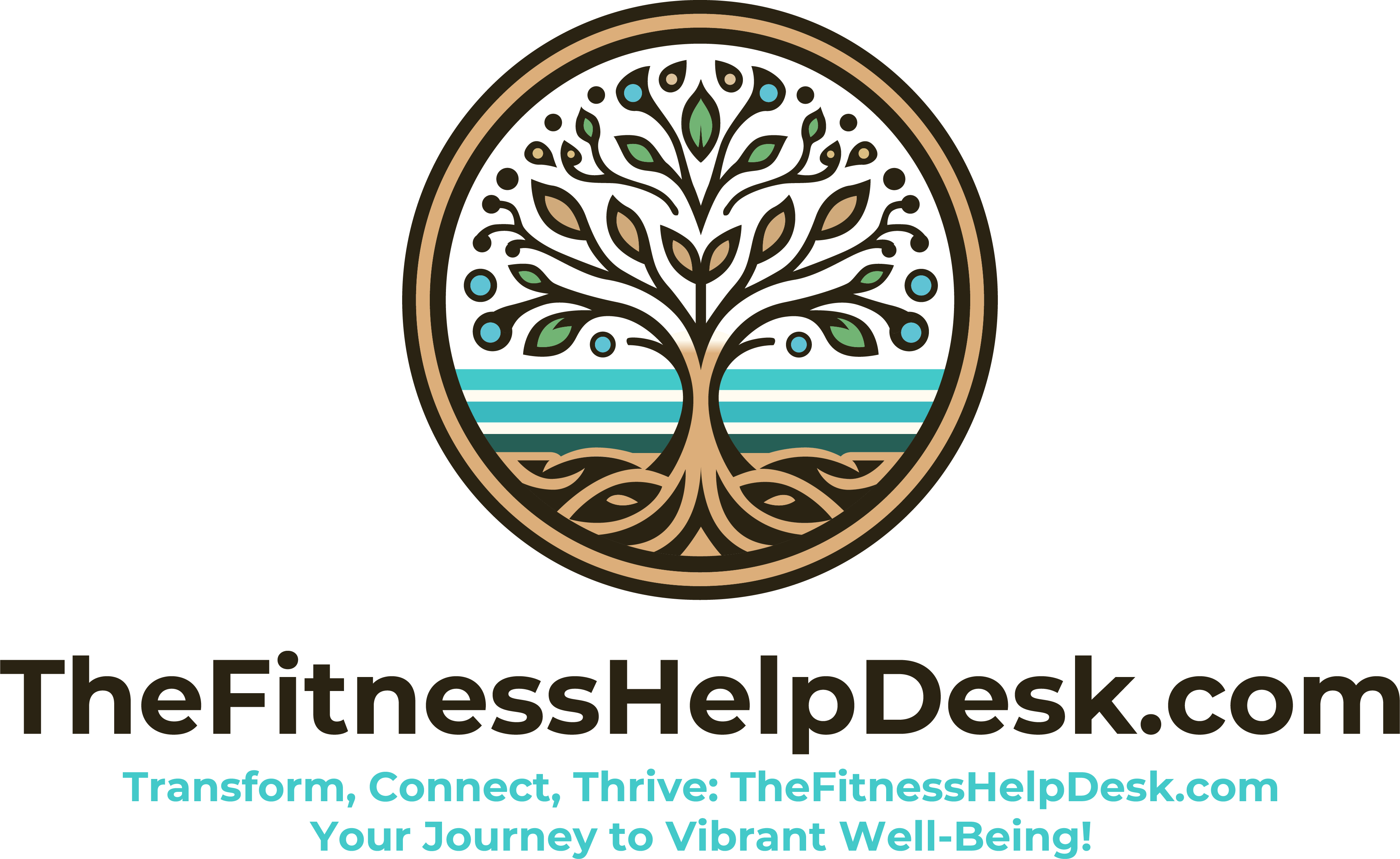Introduction: Embracing Preparedness at Every Age
In a world where emergencies are both unexpected and inevitable, preparedness is key—especially for seniors. Being well-prepared can significantly mitigate the impacts of these emergencies, ensuring that seniors not only cope with crises effectively but also maintain their independence and well-being. This comprehensive guide offers the top 10 emergency preparedness tips tailored specifically for seniors, encompassing practical strategies to enhance safety, security, and self-reliance. From creating a personalized support network to maintaining a positive mindset, each tip is designed to equip seniors with the knowledge and tools necessary to face any emergency with confidence.
1. Create a Personal Support Network
Creating a robust personal support network is crucial for senior emergency preparedness. This network acts as your frontline of assistance, providing both physical help and emotional support during crises. It is essential to choose individuals who are reliable and can be reached easily during an emergency.
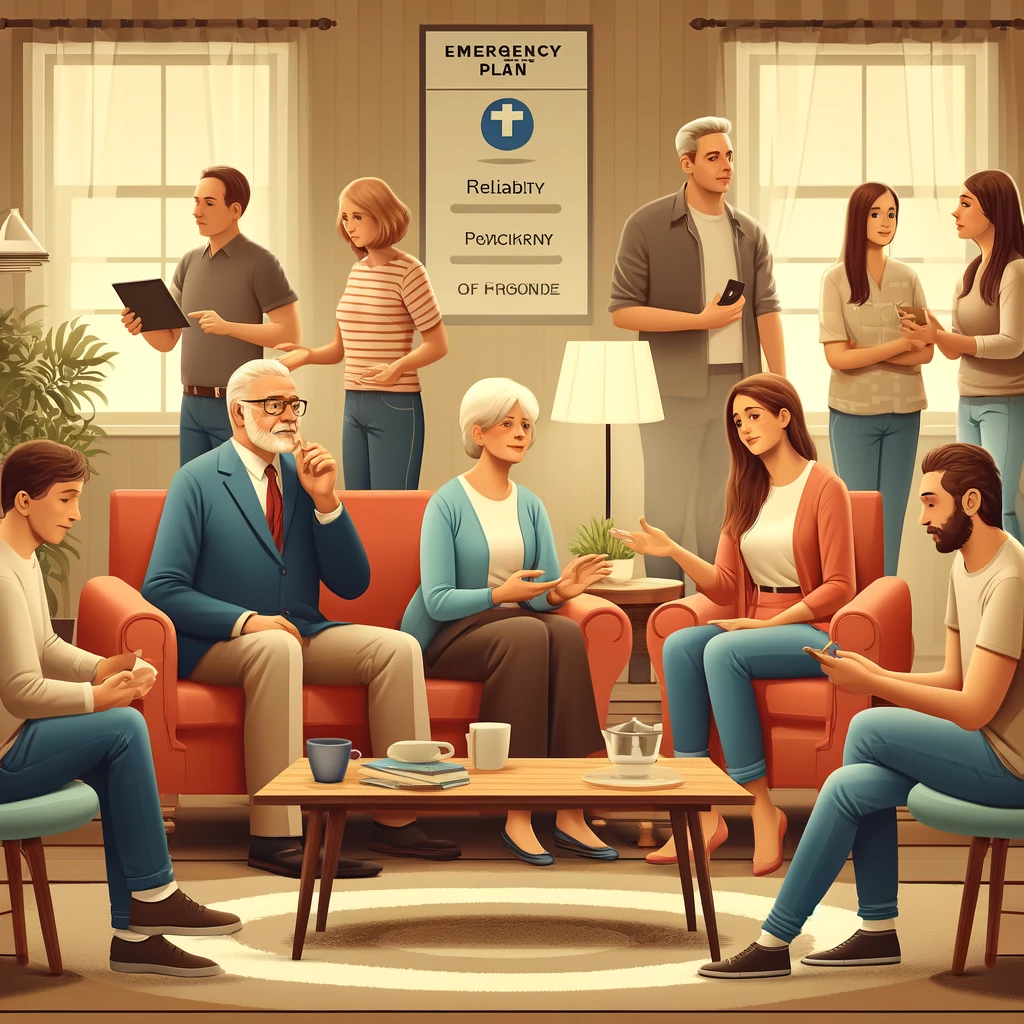
Choosing Your Support Network
- Reliability: Include individuals who are consistently available and dependable.
- Proximity: Ideally, members should live nearby in case immediate assistance is needed.
- Diverse Skills: Include people with a range of abilities, including those who can handle medical needs, physical tasks, and logistical support.
Communication Plans
- Regular Check-Ins: Establish a routine for regular check-ins via phone, email, or in-person visits.
- Emergency Communication: Decide on primary and backup communication methods to use during emergencies.
This approach not only ensures that help is available when needed but also strengthens community ties, providing a sense of security and belonging.
2. Maintain a Well-Stocked Emergency Kit
Seniors must have access to a well-stocked emergency kit that includes essential items to support survival and comfort during the first few critical hours or days after an emergency.
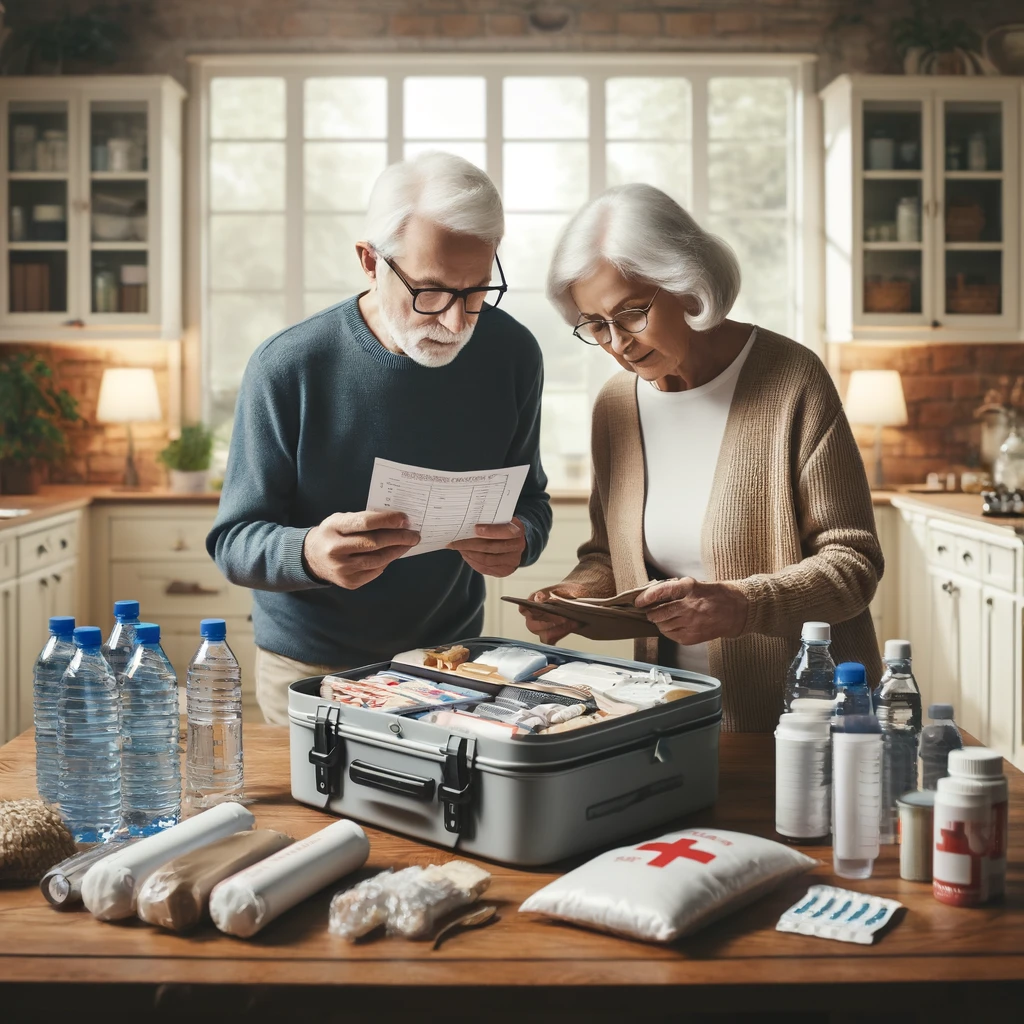
Essential Kit Contents
- Water and Food: Store at least a three-day supply of water and non-perishable, easy-to-prepare food items.
- First Aid Supplies: Include comprehensive first aid materials that cater to your specific medical needs.
Routine Checks
- Expiration Dates: Regularly check and replace expired items to maintain the kit’s effectiveness.
- Accessibility: Ensure that your emergency kit is easily accessible and that you are familiar with the contents and their uses.
A well-maintained kit not only provides vital resources but also peace of mind, knowing that you are prepared to handle most immediate emergency needs.
3. Keep All Medical Information Accessible
Having quick access to detailed medical information is vital in emergencies, particularly for seniors with complex health conditions or multiple medications.
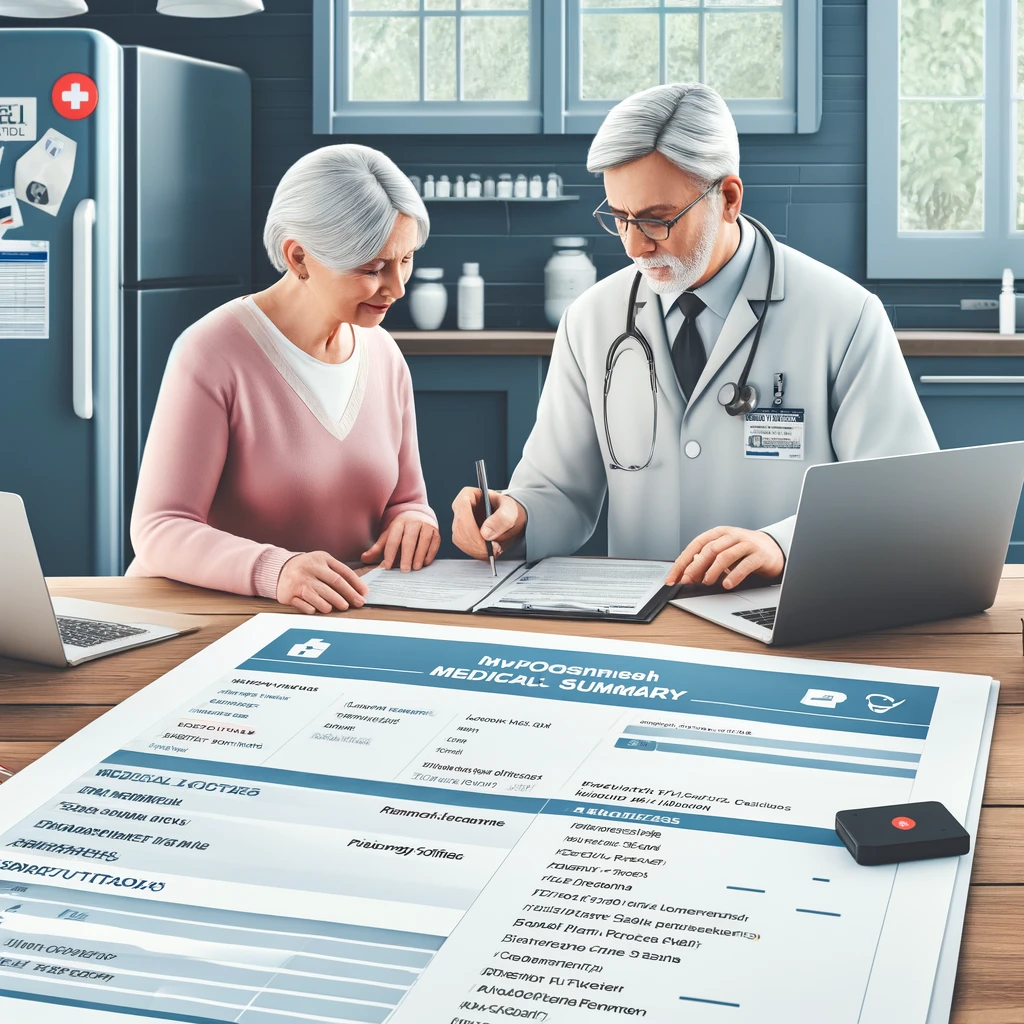
Document Organization
- Medical Summary: Create a concise document detailing medical history, current conditions, treatments, and emergency contacts.
- Digital Copies: Keep digital copies stored in a secure but accessible location, such as a flash drive or a secure cloud service.
Accessibility
- Emergency Responders: Store copies in easily visible and communicated spots like the refrigerator door or with your emergency kit.
4. Plan for Power Outages
Power outages can be particularly challenging for seniors, especially those who rely on power-dependent medical devices.
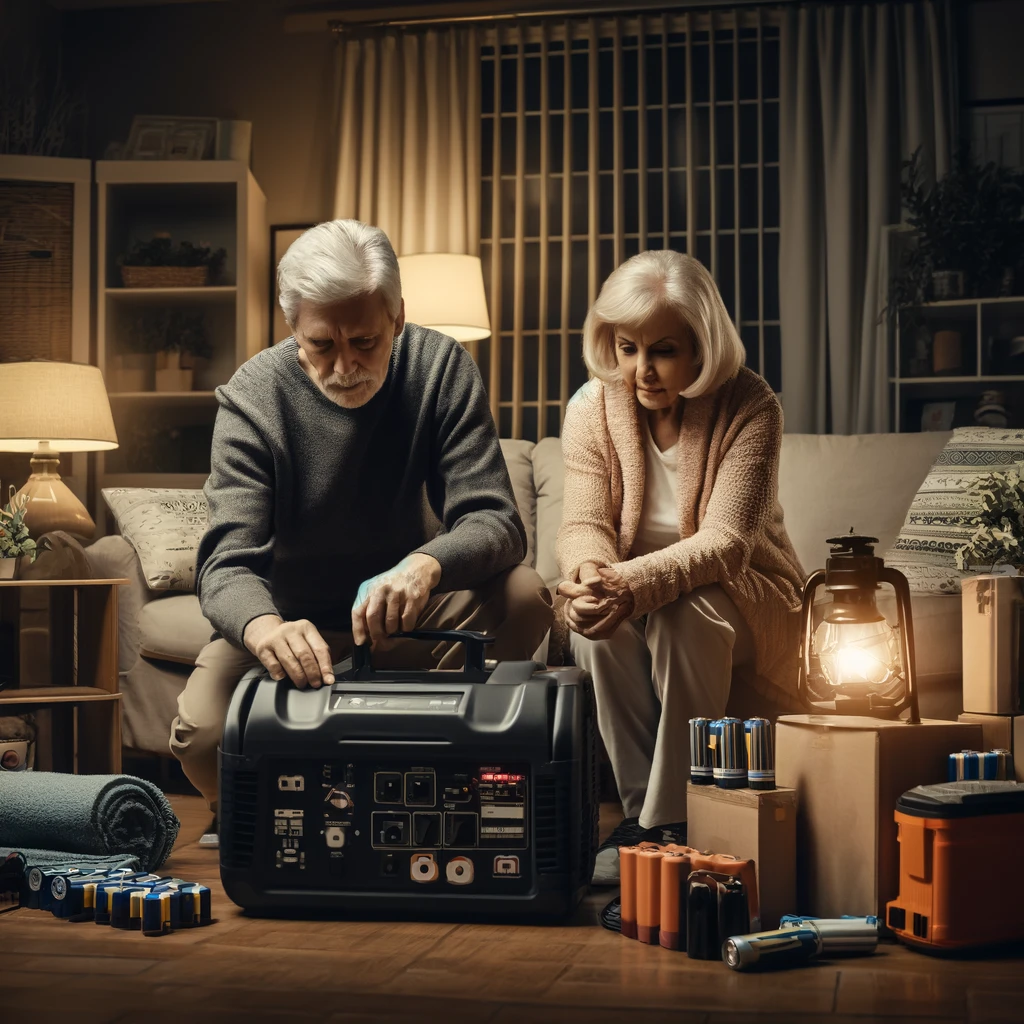
Backup Power Solutions
- Generators: Consider installing a generator for critical devices.
- Battery Packs: Have portable battery packs charged and ready for smaller devices like mobile phones.
Safety During Outages
- Avoiding Hazards: Use flashlights instead of candles to prevent fire risks.
- Maintaining Comfort: Keep extra blankets and warm clothing accessible to stay comfortable without heating.
Proactive planning for power outages ensures that you remain safe and as comfortable as possible until power is restored.
5. Familiarize Yourself with Local Emergency Plans
Understanding local emergency plans is key to effective senior emergency preparedness, ensuring you know how to respond when a broader community response is initiated.
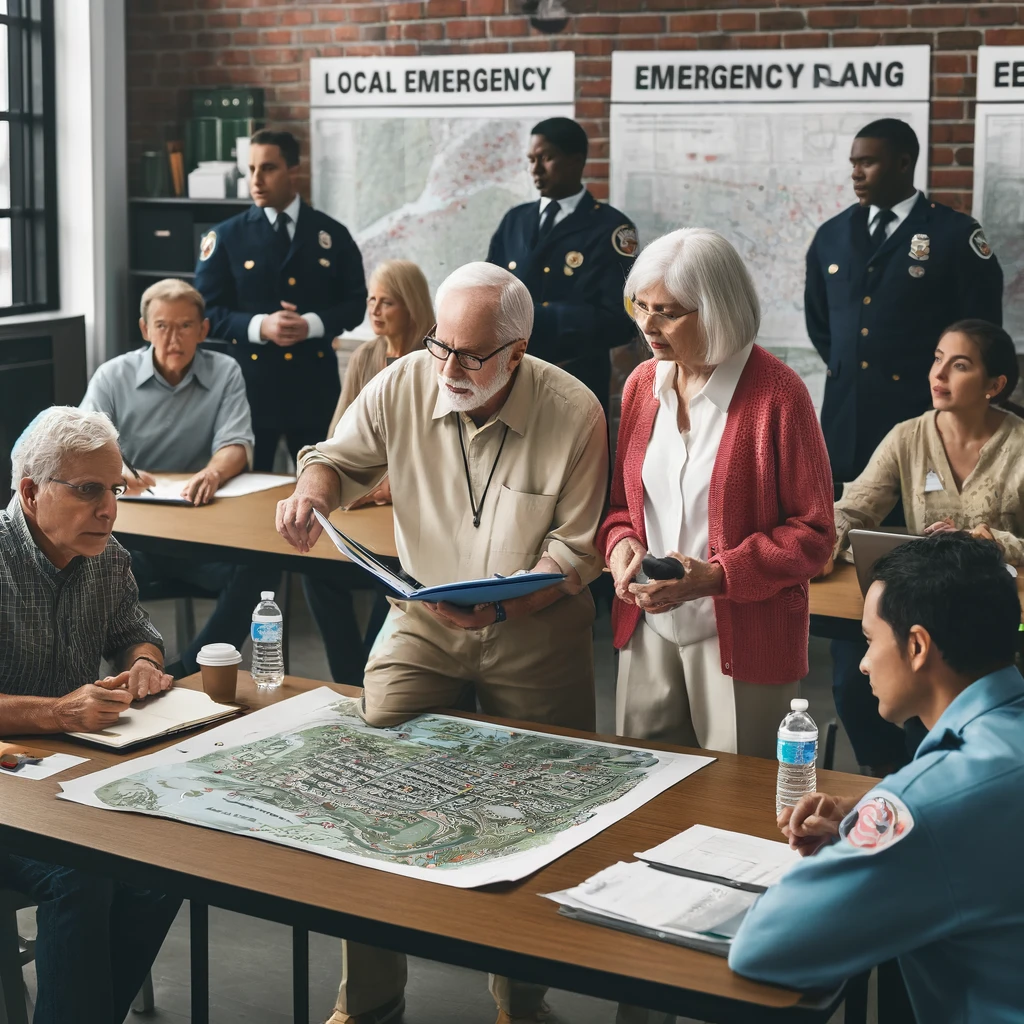
Local Resources
- Emergency Services: Know the locations and contact information for local emergency services, including hospitals and police stations.
- Community Safety Plans: Attend community meetings to stay updated on local safety protocols and initiatives.
Evacuation Procedures
- Personalized Evacuation Plan: Tailor community evacuation procedures to accommodate your specific needs.
- Transportation Arrangements: Pre-plan transportation if you do not drive, ensuring you can evacuate swiftly if needed.
By integrating into the local emergency management framework, seniors can enhance their personal safety measures while contributing to community resilience.
6. Prepare for Specific Needs
Seniors often have unique needs that must be considered when planning for emergencies. From dietary requirements to mobility issues, it’s important to tailor your emergency preparedness to fit your specific circumstances.
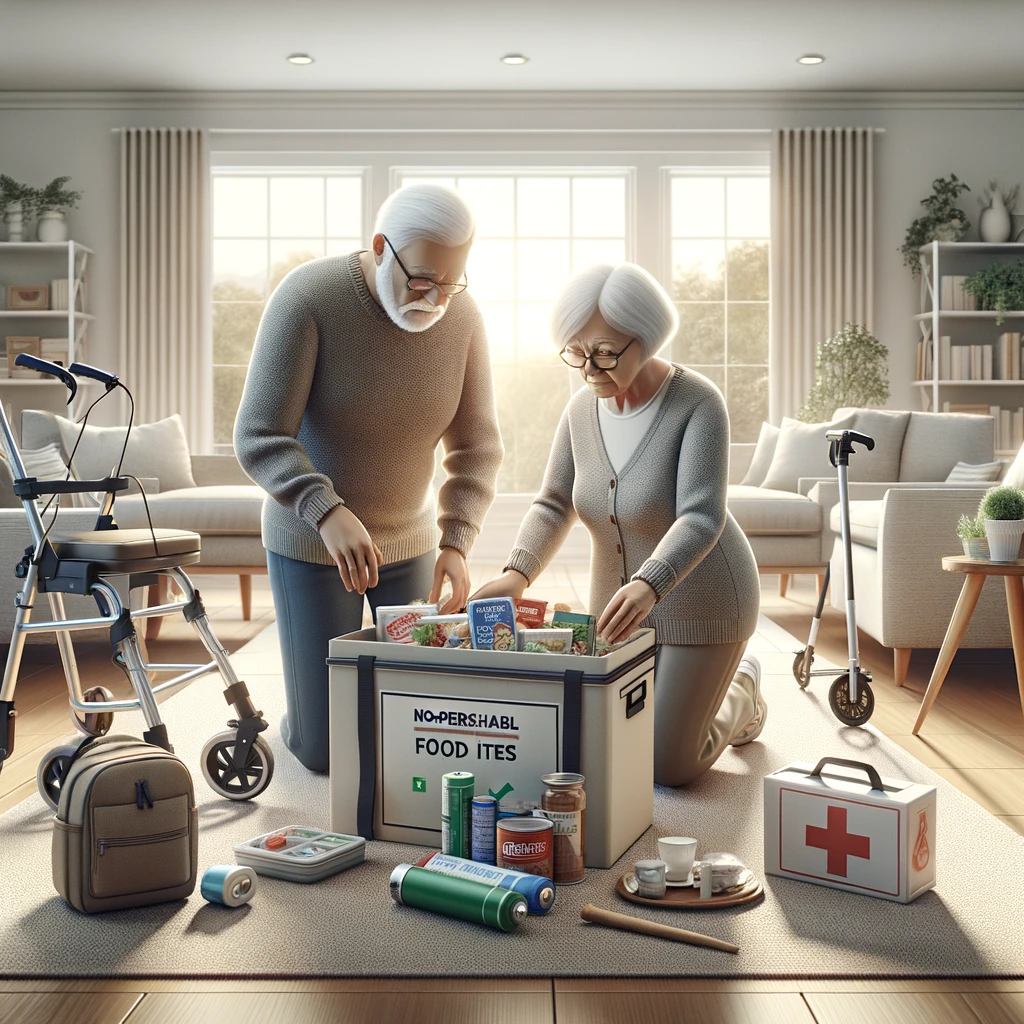
Customizing Your Emergency Kit
- Dietary Concerns: Include non-perishable food that meets any dietary restrictions you have, like low sodium or gluten-free options.
- Mobility Aids: Ensure that you have extra supplies like batteries for electric mobility aids or additional canes or walkers if needed.
Home Preparation
- Accessibility: Modify your living space to ensure it’s easy to move around quickly in case of an emergency. Remove potential obstacles and secure rugs to prevent trips and falls.
Tailoring your emergency preparations to address your personal needs not only ensures your safety but also helps maintain your independence during stressful times.
7. Practice Emergency Drills
Regular drills can significantly improve your ability to respond quickly and efficiently in an actual emergency. Practicing these scenarios helps engrain the necessary actions into your memory.
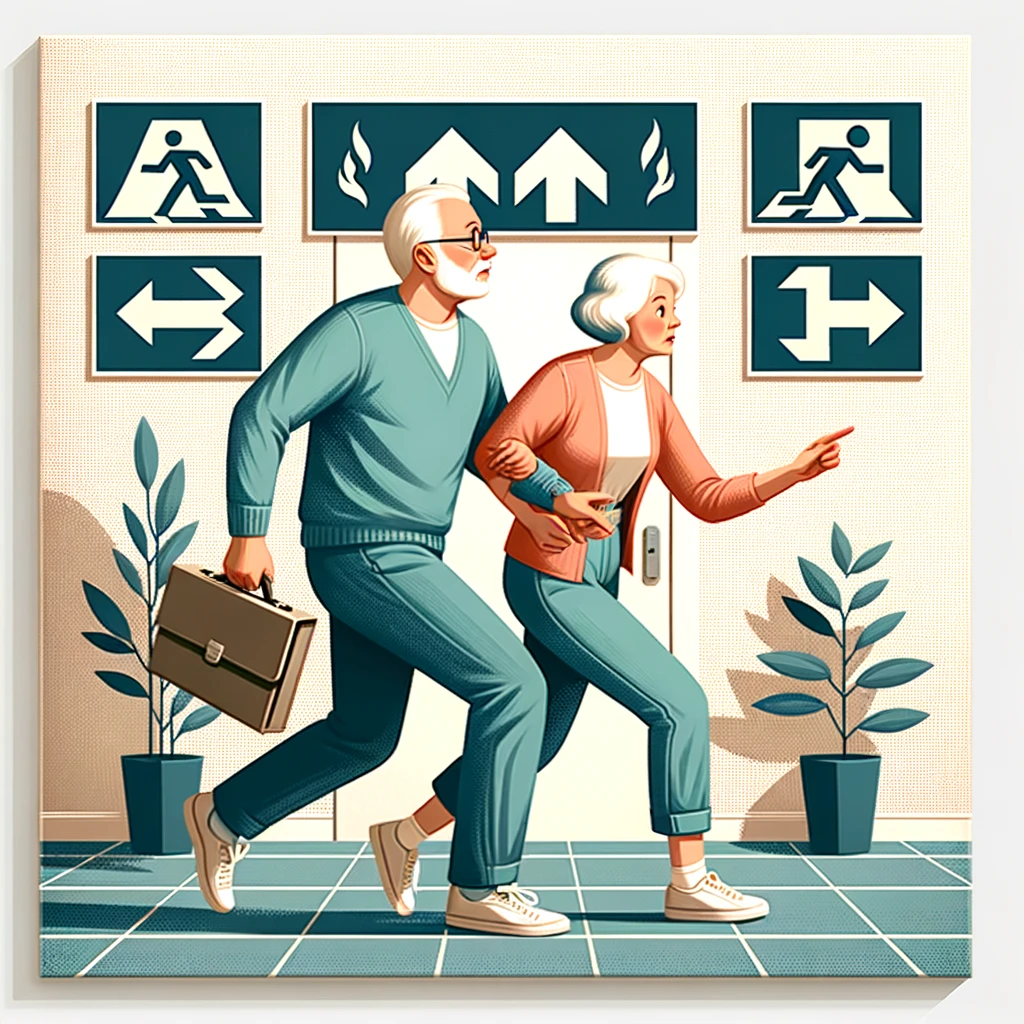
Types of Drills to Consider
- Fire Drills: Practice how to exit your home or building quickly and safely in case of fire.
- Evacuation Drills: Regularly practice using your planned evacuation routes, especially if you have mobility limitations.
Importance of Regular Practice
- Confidence: Regular drills build confidence, helping reduce panic in real emergencies.
- Feedback Loop: Use drills to identify and address any challenges or obstacles in your plans.
Implementing regular emergency drills ensures that you are not only prepared but also comfortable with your ability to execute your plans under pressure.
8. Stay Informed
Staying informed about potential emergencies in your area can help you respond more effectively. Knowledge of local hazards allows you to prepare specifically for the types of emergencies most likely to occur in your location.
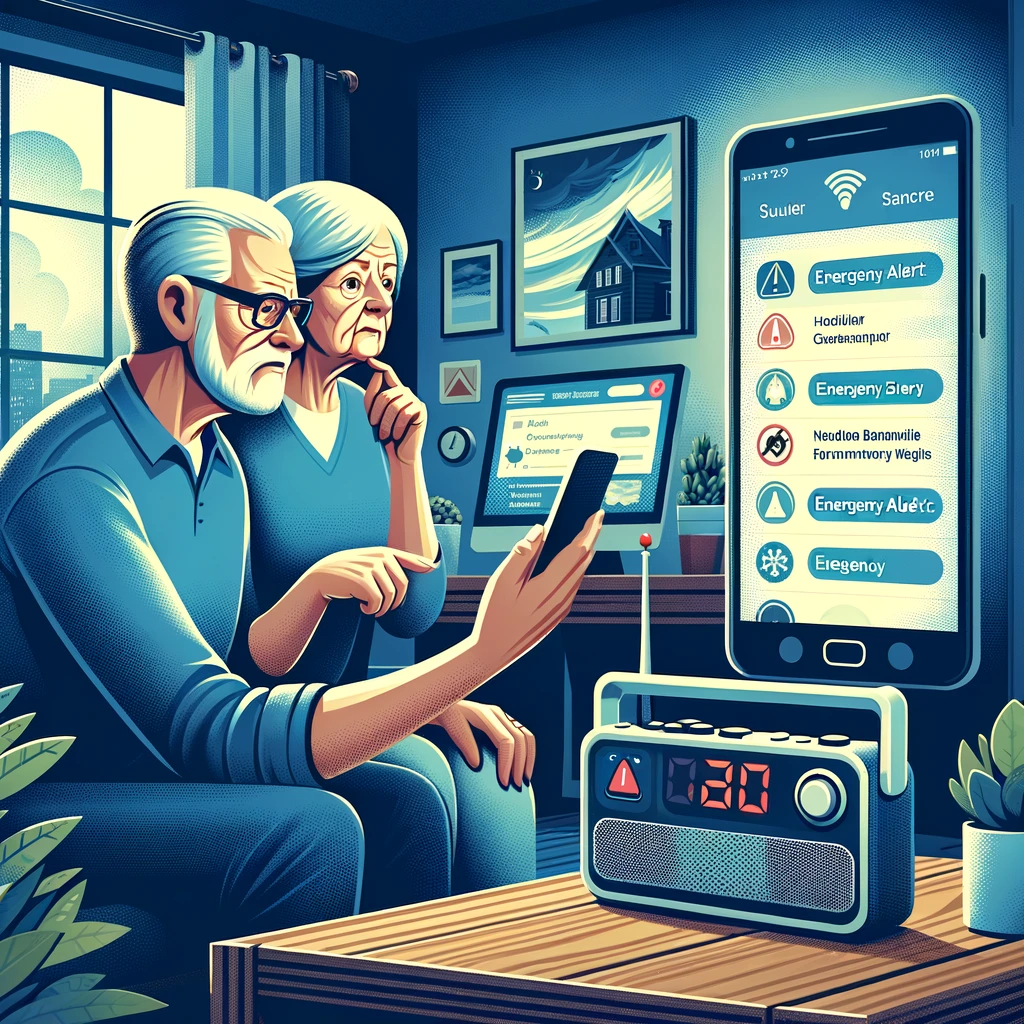
Ways to Stay Informed
- Alert Systems: Subscribe to local emergency notification systems that provide real-time alerts via phone, email, or text.
- Community Resources: Engage with local community resources for regular updates on potential hazards and planned responses.
Leveraging Technology
- Smart Devices: Utilize smart devices like emergency alert radios or apps that monitor weather and other emergency alerts.
By staying informed, you ensure that you are never caught off guard, and you can adjust your preparedness strategies as necessary based on the most current information.
9. Secure Your Home
Securing your home is a critical aspect of emergency preparedness, particularly for seniors who may face challenges during evacuations.

Home Safety Checks
- Regular Inspections: Conduct regular inspections to identify and mitigate hazards like loose wires or slippery surfaces.
- Securing Heavy Items: Secure heavy items and furniture to prevent movement during storms or earthquakes.
Emergency Repairs
- Tools and Supplies: Keep basic tools and supplies handy for making minor repairs if safe and necessary post-emergency.
- Professional Contacts: Maintain a list of professional services you can contact for urgent repairs.
Properly securing your home not only prevents accidents but also reduces the extent of potential emergency damage, making your environment safer and more comfortable.
10. Maintain a Positive Mindset
Maintaining a positive mindset is often overlooked but vital in managing emergency situations effectively. A calm and positive approach can reduce stress and improve your overall ability to cope with emergencies.

Techniques for Positivity
- Mindfulness and Meditation: Regular practice can help manage stress and maintain a clear head.
- Stay Connected: Maintain regular contact with loved ones and your community, which can provide emotional support and practical help.
Inspirational Engagement
- Motivational Reading and Quotes: Regularly read motivational materials or keep inspirational quotes visible to help boost your morale during tough times.
- Community Involvement: Engage in community activities that keep you connected and positive.
Cultivating a positive outlook not only helps you handle the stress of an emergency more effectively but also influences your overall resilience, both mentally and physically.
Conclusion: Ensuring Safety and Peace of Mind
As we conclude this essential guide to senior emergency preparedness, remember that the goal is not just to respond to emergencies when they occur, but to live every day with peace of mind, knowing you are well-prepared. Each step you take towards preparation not only enhances your safety but also reinforces your ability to live independently and with dignity. We encourage all seniors and their caregivers to review these tips regularly, adapt them to evolving needs, and practice readiness as a part of daily life. By embracing these principles, seniors can secure not just their safety but also a profound sense of empowerment and resilience.
About Steve Allison
Steve Allison is an experienced personal trainer and nutrition specialist for seniors, with a wealth of knowledge and certifications from the National Academy of Sports Medicine (NASM). His dedication to improving the lives of seniors is evident through his commitment to tailored fitness and nutrition programs that enhance the golden years of many. For more invaluable insights into senior health and wellness, visit TheFitnessHelpDesk.com.

